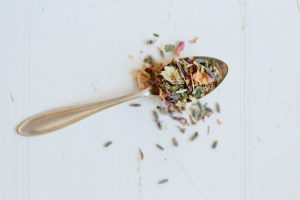The Naturopathic Co.

You're using an outdated browser. Please upgrade your browser to improve your experience.
Disclaimer; This web content does not aim to diagnose, treat, cure or prevent any illness or disease. Information on this site is shared for educational purposes only. You must consult with a medical practitioner before acting on any blog wellness content on this website, particularly if you are pregnant, breastfeeding, taking prescription medication, or have a medical condition.
Many people mistake Quercetin and CoQ10, because of their similar health benefits. Despite some similarities, they are distinct compounds with different mechanisms of action.
Quercetin is a chemical found naturally in plants, which belongs to a large group of compounds called flavonoids. Flavonoids give many plants their natural colour. Quercetin is found in food such as apples, berries, cruciferous vegetables, tea leaves, raw red onions, nuts, and seeds, and is the most prominent amongst all dietary flavonoids.
Quercetin is anti-inflammatory, anti-histamine, and an antioxidant. Antioxidants help scavenge damaging molecules called free radicals in the body. Free radicles are harmful molecules that are highly unstable and responsible for DNA damage, cell membrane damage, and sometimes even cell death.
The powerful anti-inflammatory actions of quercetin are also highly helpful in protecting cardiovascular health and preventing cancer.
Quercetin has been shown to lessen the risk of diseases related to the heart and blood vessels.
Quercetin comes as a dietary supplement in vegan soft gel and capsule forms.
Coq10 is abbreviated from CoEnzyme Q10 which is a naturally occurring fat-soluble substance found in almost every cell within the body, particularly within cell membranes.
The body produces CoQ10 to convert foods into energy, however our levels decrease with age. Like Quercetin, CoQ10 also acts as an antioxidant.
CoEnzyme Q10 plays a key role in cellular ATP production (energy), which is essential for producing energy from foods. For this reason the highest concentrations of CoQ10 are found in the liver, kidneys, heart, and brain.
In addition, coq10 serves as one of the most important antioxidants in the body which can benefit the human body in a number of ways.
CoQ10 can lower the risk of oxidative damage through antioxidant action. It maintains energy production and enhances physical performance, helps to lower inflammation, lowers the risk of heart disease, lowers blood pressure, and can reduce migraines, headaches.
Both Quercetin and CoQ10 have antioxidant properties that can help with a range of health conditions, especially those that are related to inflammation such as cardiovascular concerns. However, CoQq10 can optimise energy and mitochondrial function.
CoQ10 may be used as part of treatment for diabetes, cardiovascular concerns, endometriosis, Parkinson’s disease, migraines, and much more.
Quercetin may be used as part of treatment for asthma, sinusitis, rheumatoid arthritis, high cholesterol, high blood pressure.

Yvette is a qualified Naturopath and Nutritionist, MINDD Practitioner, member of the Naturopaths and Herbalists Association of Australia.
Yvette specialises in the treatment of gut health and digestive complaints, skin issues, mood disorders, hormonal concerns, fatigue, and more.
Yvette sees patients Australia-wide.
#naturopathmelbourne #naturopathsydney #naturopathadelaide #naturopathperth #naturopathbrisbane
Comments are closed.